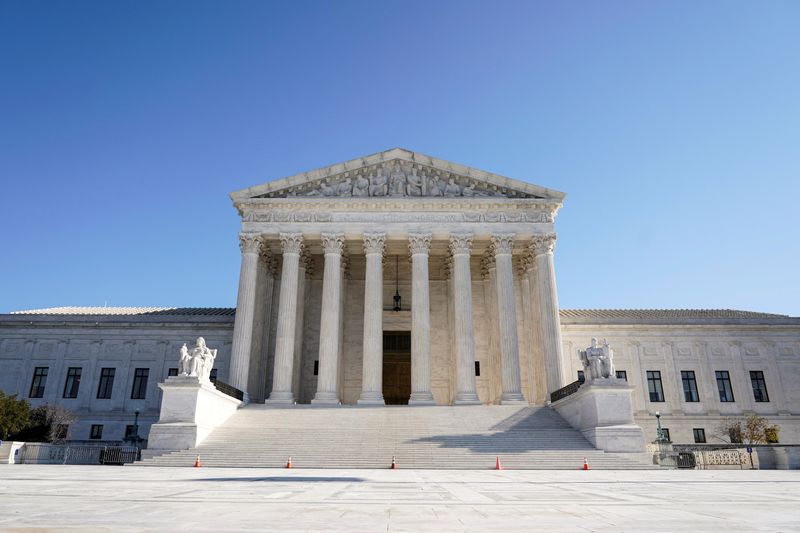By Andrew Chung and Lawrence Hurley
WASHINGTON (Reuters) -The U.S. Supreme Court on Monday sidestepped a chance to further expand religious rights, turning away two cases in which employees accused companies of violating federal anti-discrimination law by insufficiently accommodating requests for time off to meet religious obligations.
The justices declined to hear appeals by two men of different Christian denominations - a Jehovah's Witness from Tennessee and a Seventh-day Adventist from Florida - of lower court rulings that rejected their claims of illegal religious bias. Lower courts found that the accommodations the men sought would have placed too much hardship on the employers.
In a dissent, conservative Justices Neil Gorsuch and Samuel Alito said the court should have taken up the case from Tennessee. The Supreme Court has taken an expansive view of religious liberties in a number of important cases in recent years.
At issue in the cases was the allowances companies must make for employees for religious reasons to comply with Title VII of the Civil Rights Act of 1964, which prohibits employment discrimination based on religion as well as race, color, sex and national origin.
Gorsuch wrote that religious rights under the employment law are "the odd man out" because they do not receive as much protection as other rights guaranteed under federal law, such as those that apply to the disabled.
"Alone among comparable statutorily protected civil rights, an employer may dispense with it nearly at whim," Gorsuch wrote.
Under the law, employers must reasonably accommodate workers' religious observance or practices unless that would cause the company "undue hardship" - which the Supreme Court in a 1977 case determined to be anything more than a minor, or "de minimis," burden. Critics of the "de minimis" standard have argued that it particularly harms religious minorities.
Last year, in a similar appeal that the court declined to hear that involved a member of the Seventh-day Adventist Church, three conservative justices - Alito, Gorsuch and Justice Clarence Thomas - indicated that the court should consider overruling the 1977 precedent.
The Tennessee case involved Jason Small, a leader in the Jehovah's Witnesses congregation in the Memphis suburb of Collierville who worked as a dispatcher at Memphis Light, Gas and Water, a large public utility. Small missed work in 2015 to attend worship on the Good Friday holiday as well for a congregational duty the following Wednesday even though his requests for time off had been denied.
Small was suspended for two days without pay. The company said Small missed work on "multiple occasions."
The Florida case involved Mitche Dalberiste, a Seventh-day Adventist. GLE Associates, a Florida company that performs work-site safety monitoring, revoked his job offer after he disclosed that he would be unable to work on the Sabbath, which he observed from sundown on Friday to sundown Saturday.
GLE, in a court filing, said Dalberiste lied about his ability to work on weekends and said it regretted being dragged into a "special-interest fueled lawsuit attempting to circumvent Congress." Dalberiste is represented in part by the Becket Fund for Religious Liberty, a religious rights legal group.

Both men sued in federal court, alleging religious discrimination in violation of Title VII.
In Small's case, the Cincinnati, Ohio-based 6th U.S. Circuit Court of Appeals ruled that accommodating him would cause more than "de minimis" hardship on the company's operations and other employees. The Atlanta, Georgia-based 11th U.S. Circuit Court of Appeals issued a similar ruling against Dalberiste.